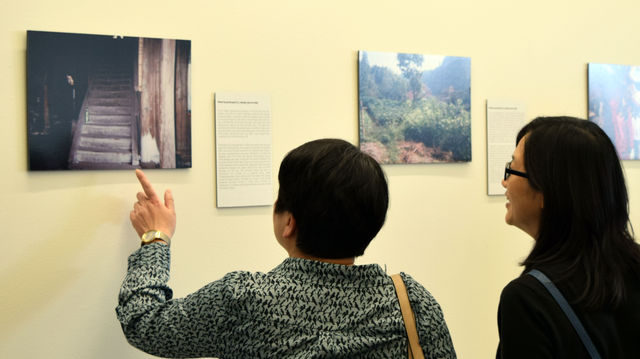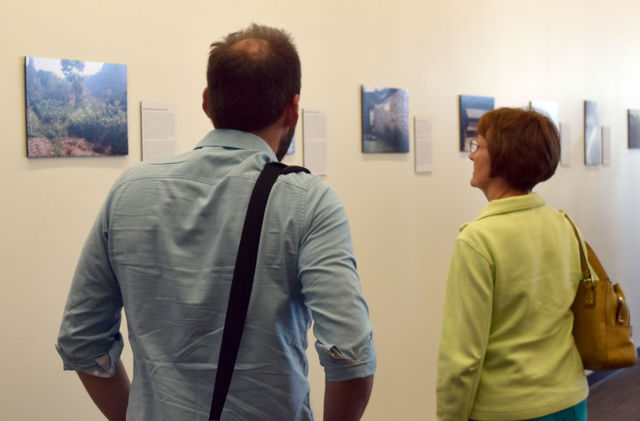A house can be rebuilt, a home cannot.
Windy Zhao, a postdoctoral fellow in the College of Architecture and Planning, said she hopes to help define this difference through her photography exhibit at the Marriott Library focusing on the people of Yanxia, China. Using research focusing on the cultural and social repercussions of rebuilding homes and land in the province, this gallery follows what the population of this area defines as home.

In a lecture on Thursday afternoon, Zhao told the audience the history of Yanxia. The Chinese government wanted to create a socialistic society, and in order to do this, they had to build new infrastructure in the region. The people already living there had to be relocated. Historic locations and natural land were sacrificed in order to create a more “ideal” society. But the people of Yanxia weren’t having it.
The Chinese government wants to rebuild the infrastructure of Yanxia again because they feel it will benefit the community. But Zhao said her research showed that most residents feel the complete opposite. Over 40 percent of the participants took pictures of things they defined as “home” that were not related to their actual houses. These images are the ones Zhao has on display at the library.
“Even if they build the house for me,” one resident said. “I won’t feel like I own it.”
Zhao said the people of Yanxia have a sense of pride towards their land and their history. The word for home in Chinese is ‘jiaxiang.’ When literally defined, it means “the place that one’s family has been living for generations.”
“Even if we are not living here, this place still belongs to us,” a resident told Zhao.
The earliest people moved to Yanxia in 1353. The people of the region defined their home as going beyond the legal barriers of their houses. Zhao said they believe the land and what it provides from them is also a part of their home.
“I can just go to the mountain to get water and food,” said a man Zhao quotes from the region.
Zhao said these residents believe their home is a place-bound relationship. They have a collective ownership, use and rights to the land in law. These people also added they define cultural practices and family traditions in this collective space, as well as in their homes.

Zhao quotes one woman who owns a shop next to their apartment. She said they tended to sleep more in their business than their home.
“It’s easier to do business here,” a woman said. “There are no differences between my home and my work.”
Six hundred and seventy-four million Chinese residents were being affected by the relocation and the rebuilding of their land. Zhao hopes to help the residents inhabit the newly built environment with her complex understanding of the context, history and customs of the Chinese culture.
d.ibrahim@dailyutahchronicle.com


